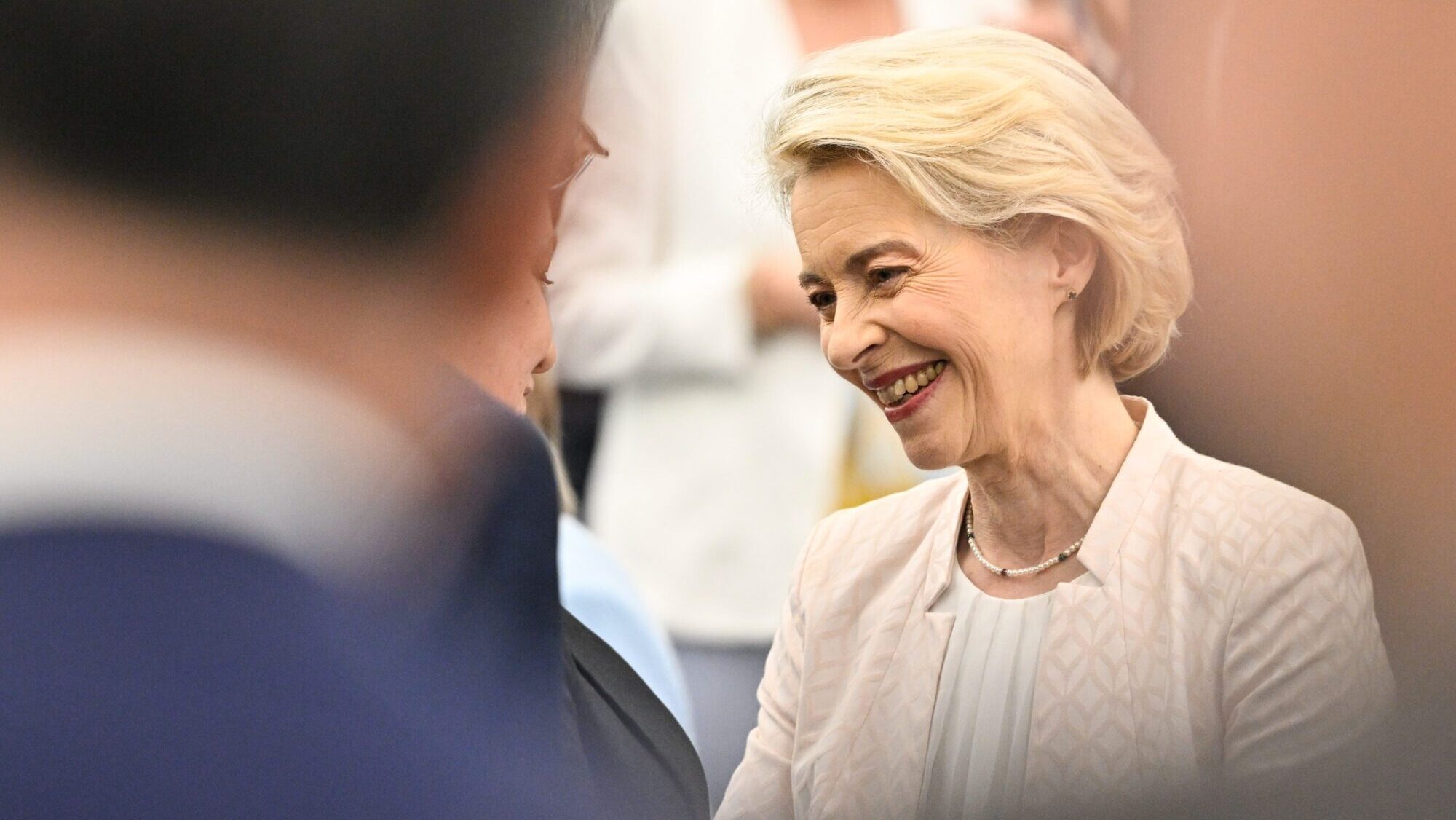
EU Commission President Ursula von der Leyen.
Photo: Philippe Stirnweiss © European Union 2024 – Source: EP
The deadline for EU member states to put forward their picks for the next European Commission passed on Sunday with all 27 capitals successfully naming their candidates. The ball is now in President-elect Ursula von der Leyen’s court to divide the portfolios between them as she sees fit before the incoming commissioners stand before the European Parliament for the approval of MEPs.
But von der Leyen has a problem: only nine candidates are women (excluding herself) and 17 are men, something she sees as unacceptable in the current age. In order to reach gender parity, she even asked countries to put forth two names this year—a man’s and a woman’s—for her to mix and match for the best results. However, as commissioner nominations are an exclusive member state competence, all but one country (Bulgaria) ignored this ridiculous (and frankly, undemocratic) request.
Even though the time for changes has officially passed, von der Leyen is now reportedly still trying to pressure smaller, vulnerable member states to change their minds about their male candidates and put forward women instead—just so that she can avoid the humiliation of failing to put together a gender-balanced cabinet despite vowing to do so.
As we reported last week, Maltese diplomats revealed that the President-elect willfully disregards the principles of sovereignty and democracy (and even women’s interests) by blackmailing smaller and, therefore, politically weaker member states by promising them influential portfolios (like budget or defense) if they change their minds—or face the consequences if they don’t.
“The [Maltese] government must decide: stand by our nominee and look strong but get a weaker portfolio. Or swap nominee, look weak but get a stronger brief,” one unnamed diplomat described the country’s dilemma. Malta didn’t cave and held onto its candidate, PM Robert Abela’s chief advisor Glenn Micallef.
But ironically enough, given the context, it seems von der Leyen can’t take no for an answer. Unnamed diplomats revealed to Politico on Monday that the President-elect is still trying to strongarm at least five smaller member states, including Malta and Slovenia, to nominate women instead.
No information is available on whether von der Leyen is making any progress, but it’s unlikely she’ll have anything to show for her efforts—other than member states’ growing resentment. Nonetheless, she has a few weeks set aside for dividing the portfolios to play her game, and she’s not expected to give up in the meantime.
But even if she fails to strongarm any country into withdrawing their male nominations, she could still have the European Parliament do the dirty work for her in the end. The MEPs will need to approve every single commissioner, starting in late September or early October, and it’s entirely possible that the mainstream’s ‘Ursula coalition’ will reject a number of them just because of their gender, forcing countries to reconsider.
So far, von der Leyen’s mafia tactics appear to have succeeded in only one case: Romania’s socialist (PSD) government changed its mind about its commissioner pick at the very last minute and nominated MEP Roxana Mînzatu instead of her colleague Victor Negrescu.
“I accept this decision as I have always supported gender rights, which in my understanding was the only argument not to put my name forward,” Negrescu told reporters, trying to hold on to his dignity. “I hope other countries and political groups will make the same effort.”
Dropping Negrescu might also have been motivated by the fact that the MEP slightly overstepped last week when he complained about the European socialists not having enough commissioners compared to von der Leyen’s centrist EPP and strongly demanded the President-elect to pressure a government to give up its seat or face possible boycott from the Left.
